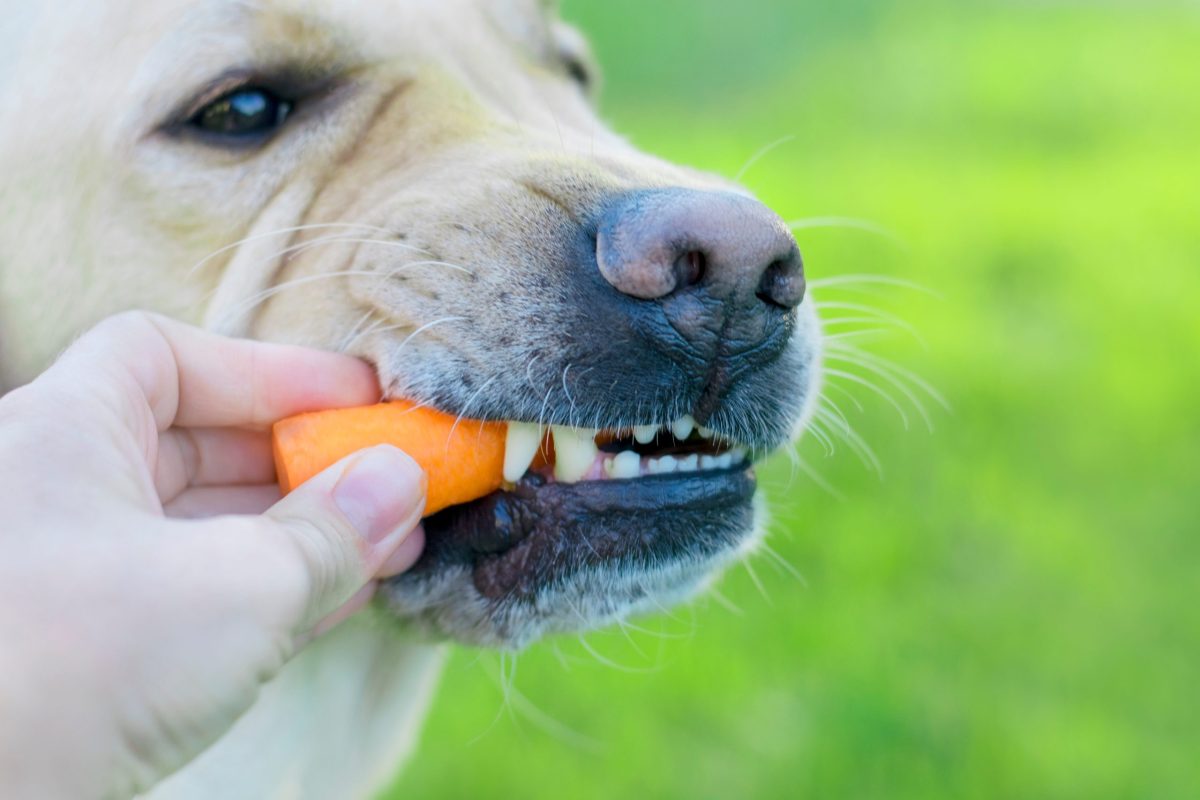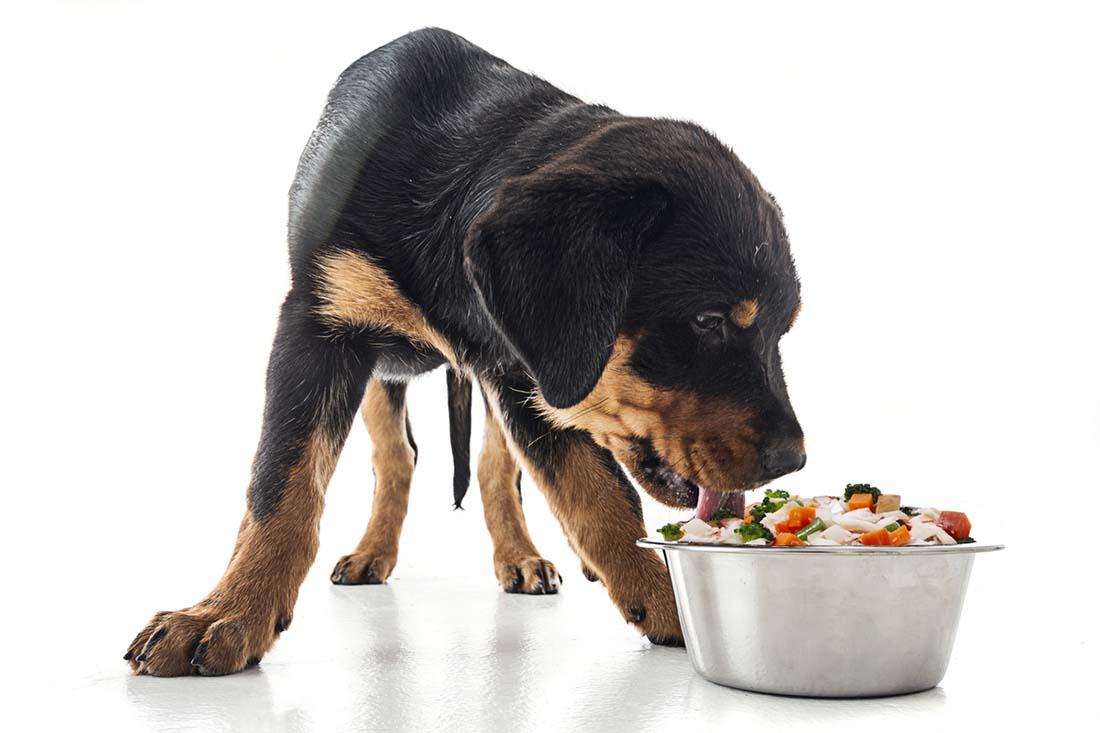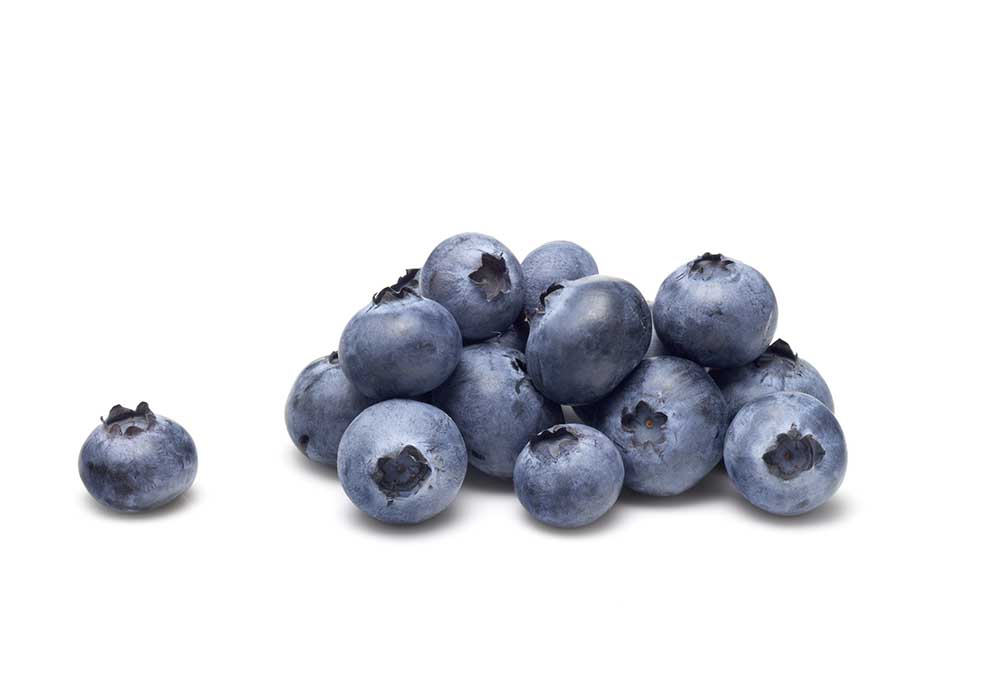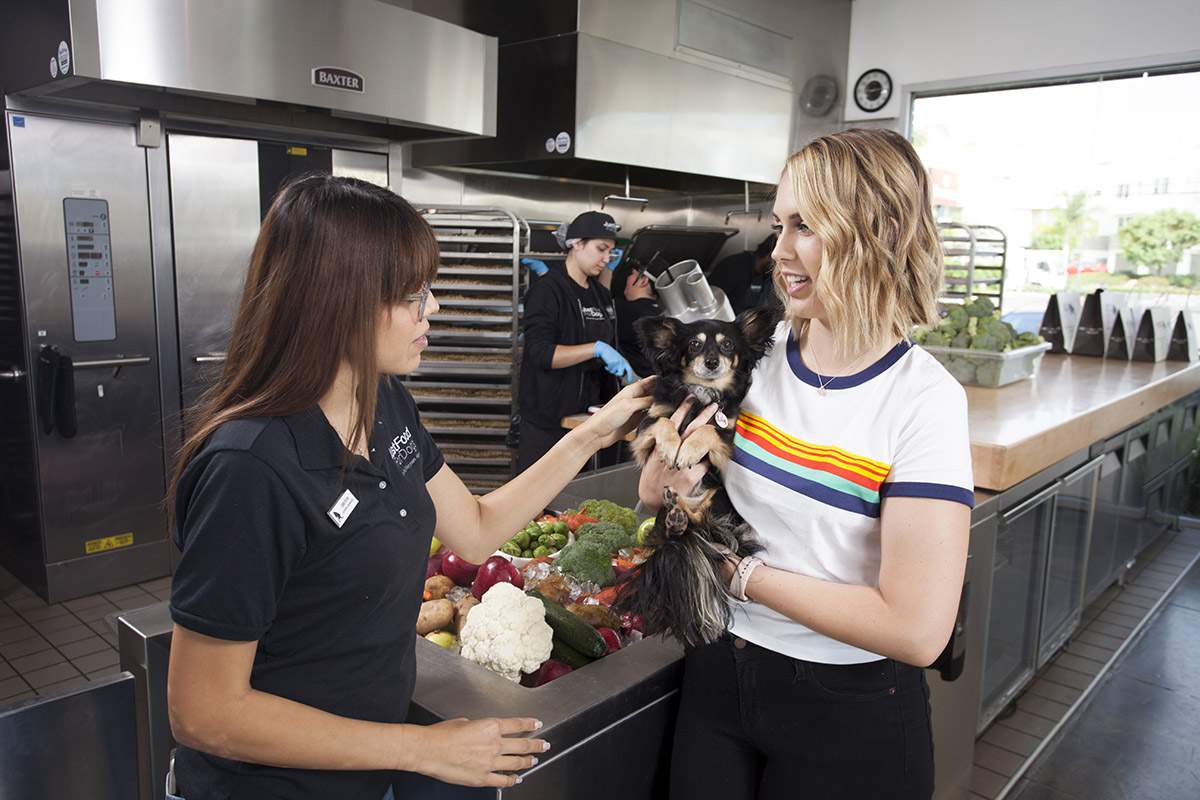Are Carrots Healthy for Dogs?
Are carrots healthy for dogs, and do they get the same health benefits as we do? Here's everything you need to know about this tasty root vegetable.
Most of us remember our mother telling us to eat our carrots! But what about our canine companions? Can they eat carrots, too? Are carrots healthy for dogs, and do they get the same health benefits as we do?
As it turns out, carrots are, in fact, dog-safe; they are one of the human foods that make a great low-calorie treat, which may help prevent obesity. They also have a lot of vitamins for your furry friend!
Let’s take a closer look at the health benefits of carrots for your dog, how much you should feed them, and how you can prepare them.
Why Are Carrots Healthy for Dogs?

Carrots are a healthy food for both you and your pooch, but exactly why are they so good for all of us? Well, they are packed with Vitamins A, C, D, E, K, B6, and B1. Let’s look at several reasons why these vitamins in carrots make them a healthy snack for your four-legged friend.
1. Eye Health
You might remember your mother telling you that carrots are good for your eyes, and she was right. The reason is that carrots contain beta-carotene, which reduces the risk of macular degeneration and the blindness it causes.
But that’s not all. Beta-carotene also works as an antioxidant that can help prevent many diseases and infections. It’s a precursor to Vitamin A, which makes it vital for other aspects of your dog’s health, too.
2. Bone Growth
Aside from what the Vitamin A in carrots does for your furry friend’s vision, studies show it also supports his bone growth. That’s why carrots are great for puppies, too. The calcium found in carrots is a necessary element for growing strong, healthy bones, as is Vitamin D. All together, these vitamins found in carrots support the growth of bones and teeth.
3. Skin and Coat Health
The vitamins and minerals in carrots also help give your pooch a shiny coat and healthy skin. The Vitamin A in carrots helps with this, as does the Vitamin E.
4. Immune System Health
Vitamins A and C in carrots help boost the immune system and develop and repair body tissues. Vitamin C, in particular, helps wounds heal, and it also maintains cartilage, bones, and teeth. Additionally, it is vital for the absorption of iron.
5. Lower Blood Pressure
Potassium is found in carrots, and it is helpful for lowering blood pressure. It also helps maintain the health of your dog’s heart and kidneys. Another benefit of potassium is that it helps to relieve stress and anxiety.
6. Blood Clotting
Vitamin K is essential for clotting. Without it, your dog’s blood would not clot properly, and he could bleed to death from otherwise simple injuries. But Vitamin K does more than that. It also helps build strong bones and prevent heart diseases.
7. Improve Cardiovascular Functioning
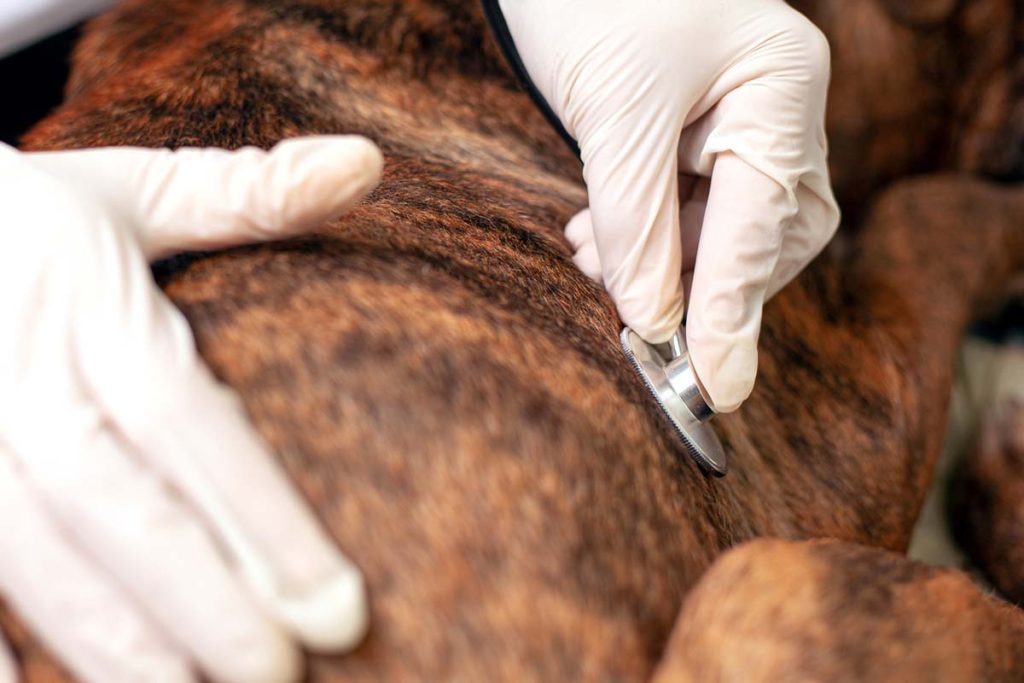
Carrots also contain Vitamin B1, which helps to improve cardiovascular functioning. This can prevent a number of heart diseases. Vitamin B1 also helps to maintain your dog’s nervous system.
8. Healthy Metabolism
The Vitamin B6 found in carrots is helpful for converting food into energy, something vital for your dog’s overall health. It does this, in part, by helping your dog’s body to metabolize proteins and fats.
9. Anti-aging and Reduced Cell Damage
Finally, carrots contain antioxidants, which can help to fight aging and reduce cell damage. The falcarinol and falcarindiols in carrots may also help fight cancers, including breast and colon cancer.
10. Dental Health
Loving pet parents know that keeping their dog’s teeth clean can be a big challenge. Most veterinarians recommend you brush your dog’s teeth daily, but that is not always easy. While they should never be used as a substitute for teeth brushing, carrots can lend a hand occasionally.
Raw carrots are crunchy, and yes, your pooch can eat them raw. Their crispiness helps scrape teeth and prevent plaque buildup. You should, however, make sure to cut them into bite-sized pieces after you’ve rinsed them well. You can also utilize frozen carrots for this purpose.
You also need to know that dogs cannot metabolize the nutrients of raw carrots. Carrots have a wall of cellulose around them that dogs can’t digest, so to get the full benefits of carrots, you’ll need to also feed cooked carrots.
11. Digestive System Health and Obesity Prevention
Carrots are also high in fiber while being low in calories. This means they can help your pooch have regular bowel movements, and they make a great healthy treat option. There are 2 grams of fiber and only about four calories in a baby carrot, which makes carrots, particularly baby carrots, a great choice for a snack.
How Should You Feed Carrots to Your Furry Friend?
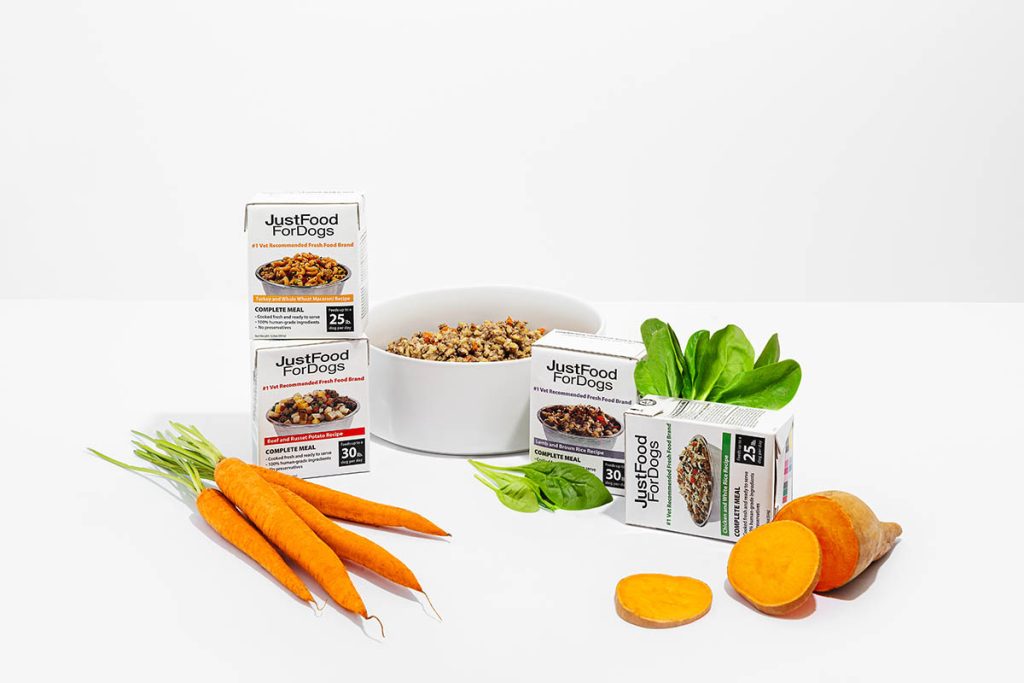
Are carrots good for dogs? As mentioned, dogs can eat raw carrots, but cooked carrots provide better nutrient absorption for your puppy. Whether raw or cooked, you’ll want to make sure the carrots you give your dogs don’t become a choking hazard by cutting them into small pieces. That will also prevent them from causing an intestinal blockage.
When cooking carrots, just make sure you don’t serve them too hot. Also, don’t add anything to the carrots like butter, oils, fats, or other seasonings. These can be unhealthy for your dog or even toxic. Garlic and onions, for example, are toxic to dogs and should never be part of the carrots you prepare for your four-legged friend.
Also, carrots have plenty of natural sugars. As a result, you don’t want to feed your dog treats made with carrots, like carrot cake. The amount of sugar in something like that is way too much for a dog and could cause an upset stomach.
Also, sugar substitutes, like xylitol or other additives, like nutmeg, are toxic to dogs too, and these are commonly used in making sweet treats like carrot cake.
How Many Carrots Can Your Dog Eat?
You know the saying — everything in moderation — and that applies to feeding carrots to your dog, too! Any kind of treat, including carrots, should only make up about 10% of your dog’s diet. The rest should come from a well-balanced dog food diet.
So, what does that mean for how much you can feed your dog? Well, it depends in part on your dog’s breed and size. Here’s a guide you can use, but you should always consult with a veterinarian before feeding any new food to your dog.
- 2 – 20 pounds — examples include Yorkies, Chihuahuas, and Pomeranians: one or two carrots slices
- 21 – 30 pounds — examples include Beagles and Basenjis: up to three carrot slices
- 31 – 50 pounds —- examples include Basset Hounds, Australian Cattle Dogs, and Border Collies — five to six carrot slices
- 51 – 90 pounds — examples include Pit Bulls, Labrador Retrievers, and German Shepherds — a handful of carrot slices
- 91+ pounds — examples include Bernese Mountain Dogs, St. Bernards, and Newfoundlands — a large handful of carrot slices
What Should You Do If Your Dog Eats Too Many Carrots?
If your dog does get too many carrots, you’ll want to watch out for the following symptoms, and if you see them, you should contact your veterinarian immediately:
- Upset stomach
- Fatigue
- Gulping, licking their lips
- Lethargy
- Appears uncomfortable
- Vomiting
- Weakness
- Excessive diarrhea
- Blood in the vomit or stool
What are the Different Ways to Safely Feed Carrots?
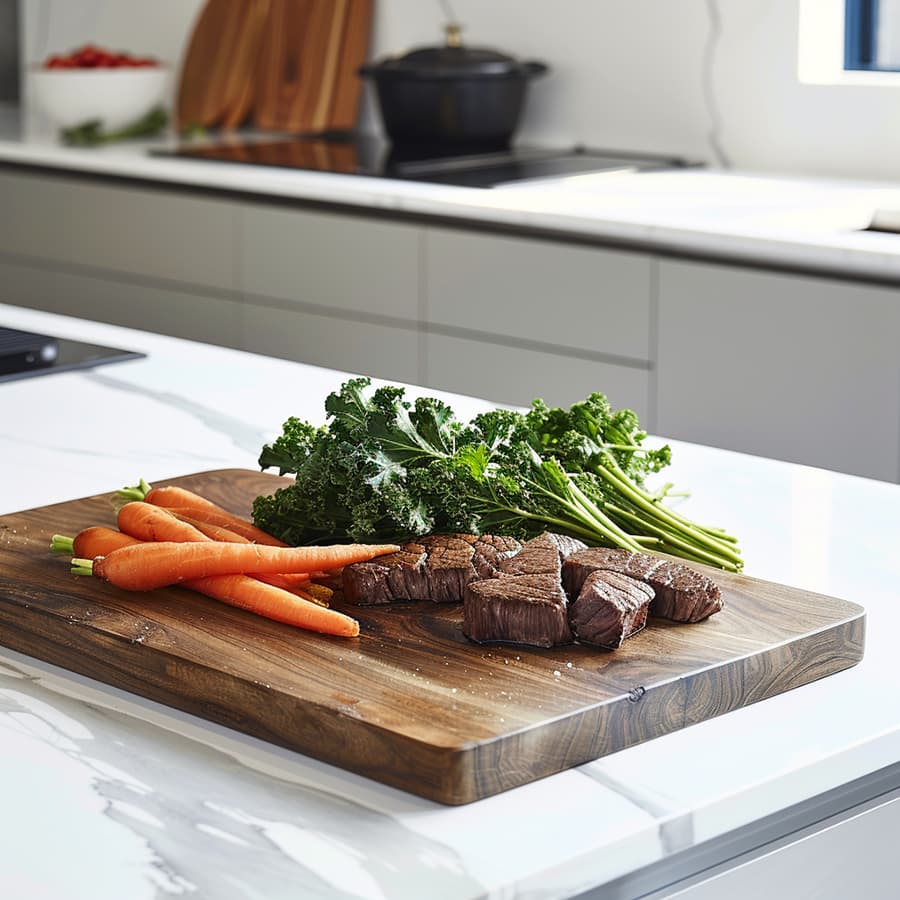
Dog owners with fussy fur babies can still get carrots into their pooch’s diet in several ways. The first is to simply feed a complete and balanced meal with carrots included. Cooked carrots will add nutrition and palatability to almost any meal, so you can simply mix them right in. Several commercial dog foods, like those of JustFoodForDogs, already contain carrots.
Another way to get carrots into your dog’s diet is to shred or grate them and put them on top of your dog’s food. Just wash them first. Carrot juice is also a good option. It’s sweet and refreshing, and most dogs find it delicious, though carrots lose some of their fiber content during the process of juicing.
If you want to feed carrot juice to your dog, you can also buy it, but just make sure it’s 100% carrot juice without any unhealthy additives. Also, it’s best to discard it after 48 hours because it doesn’t store well even if it’s refrigerated.
What About Other Veggies?
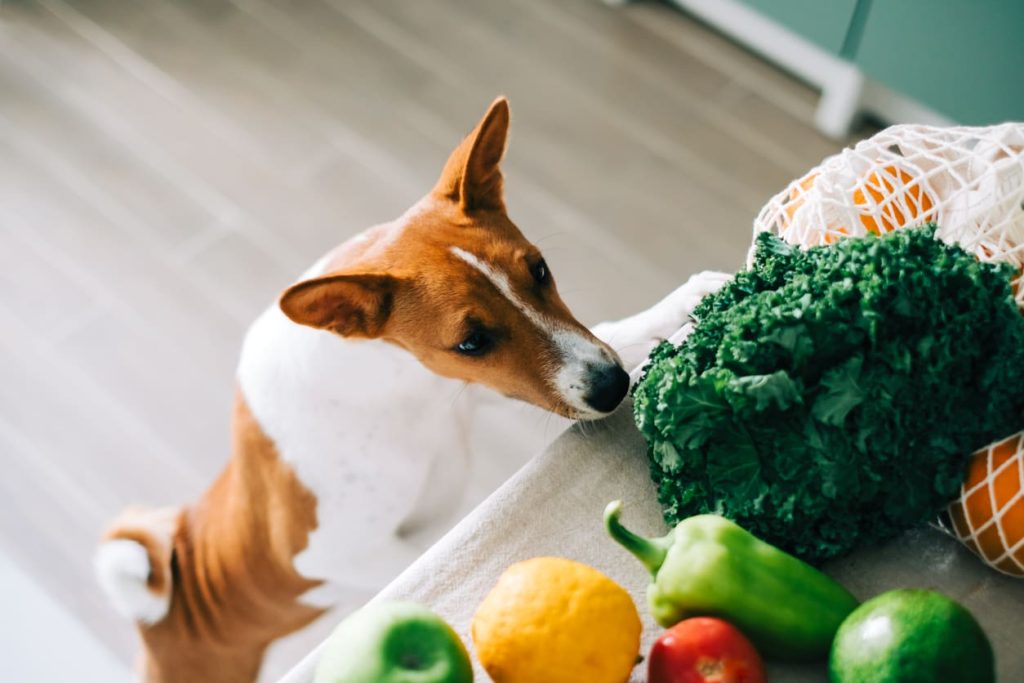
Veggies are some of the best people foods that you can feed to your furry friend. Here’s a list of veggies you can feed and those you should avoid.
Veggies You Can Feed
Here are several veggies it is safe to share with your dog.
- Broccoli — good for an occasional treat, contains Vitamin C and it’s high in fiber, but it can cause an upset stomach in some dogs.
- Brussel Sprouts — loaded with nutrients and antioxidants, but don’t overdo it because they can cause flatulence. To avoid that, consider certain dog foods containing these leafy greens as one of the components.
- Celery — contains Vitamins A, B, and C to promote a healthy heart and fight some cancers. Celery can also freshen your dog’s breath!
- Green Beans — All types of green beans are safe for dogs as long as they don’t have unhealthy additives like butter or oil. Also, if you’re feeding canned green beans, make sure they have no salt.
- Peas — whether green peas, snow peas, sugar snap peas, or garden peas, they are all safe for your dog in moderation. You should, however, avoid canned peas as they have added salt.
- Spinach — it’s not just good for Popeye; it’s good for your pooch in small amounts, too! It is high in oxalic acid, though, so this should definitely be a treat you give just once in a while. Too much oxalic acid can block the body’s ability to absorb calcium. Your dog would have to eat a very large amount for this to happen, but it should still only be given occasionally.
Veggies to Avoid
Here’s a list of veggies you should avoid giving your dog:
- Asparagus — it’s not necessarily toxic, but when given raw, it’s too tough for your dog, and when cooked, it loses some of its nutritional value.
- Mushrooms — should be avoided. Wild mushrooms can be toxic, and those could lead to your dog’s death. You could feed washed mushrooms that you purchase from the supermarket, but there are many better choices for a treat.
- Onions — NEVER feed your dog onions. They, along with leeks and chives, are part of the family of plants called Allium, which is poisonous to most pets. They can cause your dog’s red blood cells to rupture, diarrhea, stomach pain, and nausea. Onions are particularly dangerous in certain breeds of dogs, including Akitas and Shibu Inus, but all dogs are susceptible to poisoning from plants in the Allium family.
Carrots as Part of a Balanced Diet
Remember that any treat should be fed to your dog as part of a balanced diet. When you feed fresh dog food that is gently cooked with ingredients that deliver human-grade nutrition, you don’t need to give a lot of extra treats or supplements. A balanced diet with occasional treats will give your dog a healthier, happier, and longer life!
